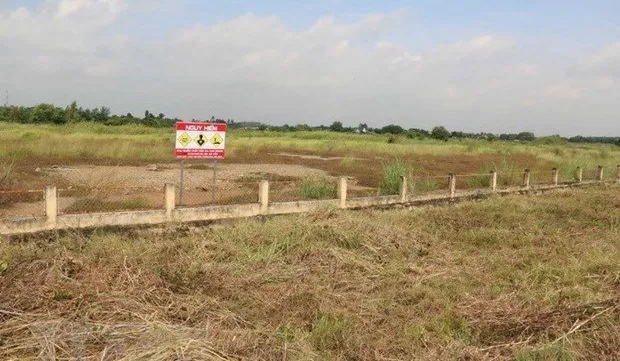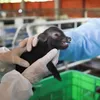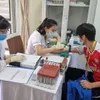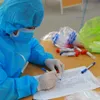Vietnamese firm selected as prime contractor for Bien Hoa Airbase dioxin remediation project

Though Vietnamese companies have been involved in USAID dioxin remediation work in both the Da Nang Airport remediation and Bien Hoa Airbase remediation projects, until now they have been subcontractors of US firms.
Through this contract, several on and off-base areas with high levels of dioxin contamination will be environmentally remediated, including areas of high traffic posing greater exposure risks. The contractor will also construct a long-term storage facility for excavated soil, as well as an access road and fencing.
According to USAID, the decision is expected to “build the capacity of a Vietnamese construction contractor to lead implementation of state-of-the-art environmental remediation work, furthering the country on its journey to self-reliance.”
In January, the Ministry of National Defense, US Mission to Vietnam and Vietnam’s Air Defence Air Force Command (ADAFC) celebrated initial dioxin remediation results in the Bien Hoa Airbase area, highlighting the US and Vietnam’s commitment toward resolving war legacies.
Over the past year, 1,134 cubic meters of dioxin contaminated sediment have been removed from a lake in a Bien Hoa City public park. In the coming weeks, after restoration of grass and trees in the park, USAID and ADAFC will hand back the land to Bien Hoa City, the USAID said.
This result is the first milestone achieved through the US Government’s US$300-million commitment to restoring the airbase and surrounding areas, which will take 10 years to complete. USAID and ADAFC also signed an additional land handover agreement which will focus on the removal of contaminated sediment over the next two years on the airbase.
The US Government, through USAID and Government of Vietnam partners, including the National Action Centre for Chemical and Environmental Treatment (NACCET), also launched a project to provide support for persons with disabilities in eight priority provinces.
USAID has committed US$65 million towards this project over the next five years to ensure that persons with disabilities can fully participate in society while improving their overall quality of life. Additionally, the US Government, through USAID, signed a letter of intent with the Office of the Standing Board for the National Steering Committee on Overcoming the Post-war Unexploded Ordnance and Toxic Chemical Consequences in Vietnam to guide future cooperation and collaboration on joint war legacy communications.
Data from the Vietnam Association of Victims of Agent Orange (AO)/Dioxin (VAVA) shows that about 4.8 million Vietnamese people were exposed to AO/Dioxin. Many of the victims have died, while millions of their descendants are living with deformities and diseases as a direct result of the chemical’s effects.
Tags:





